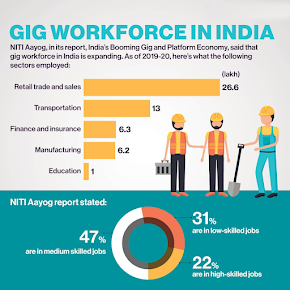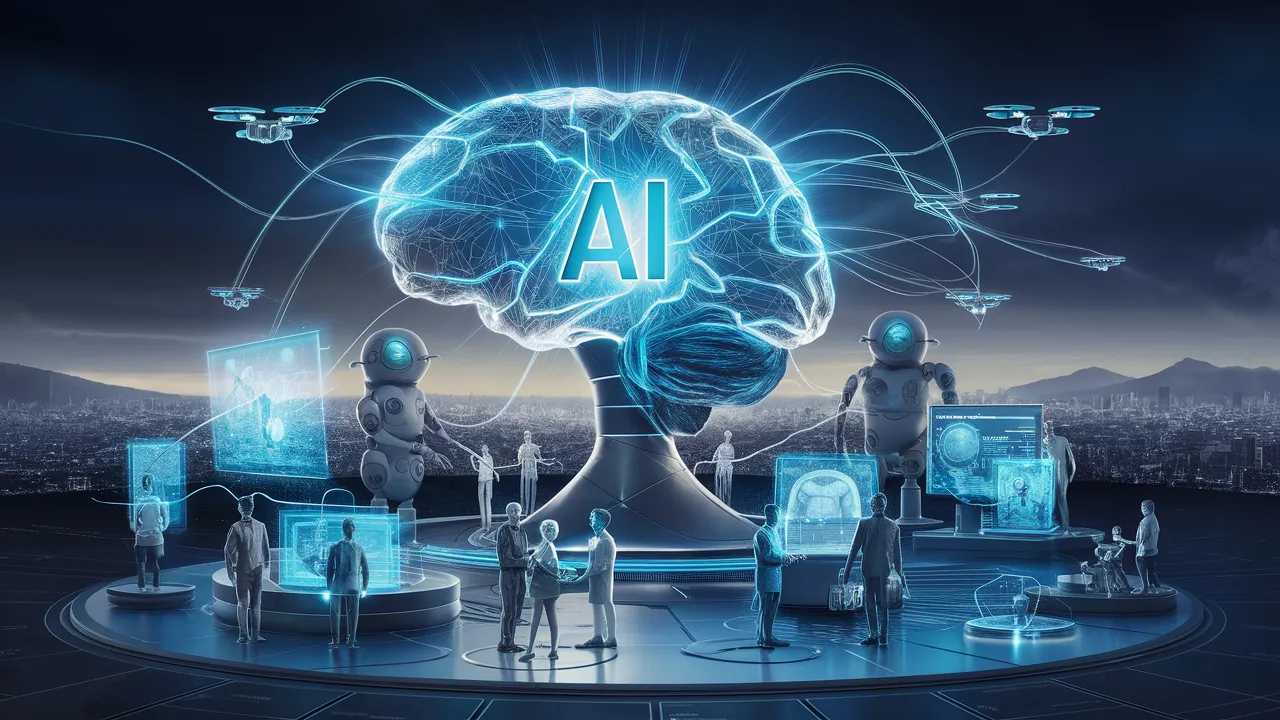Navigating Tomorrow's Workplace: Embracing the Future of Work
Embracing the Future of Work
Helping people connect, contribute and know they belong.
In the ever-evolving landscape of the modern workplace, one thing is certain: change is inevitable. As technology continues to advance at a rapid pace and societal norms shift, the way we work is undergoing a profound transformation. From remote collaboration to AI-driven automation, the future of work promises both unprecedented challenges and exciting opportunities.
1. Embracing Remote Work: The New Normal
The COVID-19 pandemic accelerated a trend that was already well underway: the rise of remote work. As companies adapted to lockdowns and social distancing measures, remote work became not just a temporary solution, but a fundamental shift in how work is done. Now, as we look to the future, remote work is here to stay.
Advancements in communication technology have made remote collaboration easier and more efficient than ever before. Video conferencing tools, project management software, and cloud-based storage solutions enable teams to collaborate across time zones and continents seamlessly. This newfound flexibility opens up a world of possibilities, allowing employees to work from anywhere and companies to tap into a global talent pool.
2. The Rise of the Gig Economy
In tandem with remote work, the gig economy is on the rise, offering individuals greater flexibility and autonomy in how they earn a living. Platforms like Uber, Airbnb, and Upwork have revolutionized the way we think about work, enabling people to monetize their skills and resources on their own terms.
For some, the gig economy offers the freedom to pursue multiple passions or balance work with other commitments. For others, it provides a lifeline in an uncertain job market, offering opportunities for supplemental income or a pathway to entrepreneurship. However, it's essential to address the challenges of the gig economy, including issues of job security, benefits, and fair compensation, to ensure that all workers can thrive in this new paradigm.
3. Automation and AI: Rethinking the Role of Human Workers
As automation and artificial intelligence become increasingly sophisticated, the nature of work itself is undergoing a radical transformation. Tasks that were once performed exclusively by humans are now being automated, from routine administrative tasks to complex decision-making processes.
While some fear that automation will lead to widespread job loss, others see it as an opportunity to redefine the role of human workers. Rather than displacing workers entirely, automation has the potential to augment human capabilities, freeing us from mundane tasks and empowering us to focus on higher-level thinking, creativity, and innovation.
However, it's crucial to address the potential impact of automation on job displacement and inequality. As certain jobs become obsolete, we must invest in reskilling and upskilling programs to ensure that workers are prepared for the jobs of the future. Additionally, we must work to mitigate the potential socioeconomic disparities that automation may exacerbate, ensuring that the benefits of technological advancements are shared equitably.
4. Cultivating a Culture of Lifelong Learning
In an era of rapid technological advancement, the ability to adapt and learn continuously is more important than ever before. Lifelong learning is no longer just a personal pursuit but a professional imperative, essential for staying relevant and competitive in today's fast-paced world.
Employers play a crucial role in fostering a culture of lifelong learning within their organizations, providing employees with access to training and development opportunities that enable them to acquire new skills and stay ahead of the curve. From online courses to mentorship programs, there are countless ways for companies to invest in their employees' growth and development.
Likewise, individuals must take ownership of their learning journey, seeking out opportunities for self-improvement and skill development. Whether through formal education, professional certifications, or hands-on experience, the pursuit of knowledge is the key to unlocking new opportunities and navigating the ever-changing landscape of the future of work.
5. Conclusion: Embracing Change in an Uncertain Future
As we stand on the precipice of a new era in the world of work, one thing is clear: change is inevitable. The future of work promises both challenges and opportunities, requiring us to embrace innovation, adaptability, and resilience. By embracing remote work, harnessing the power of the gig economy, rethinking the role of automation, and cultivating a culture of lifelong learning, we can navigate the complexities of tomorrow's workplace with confidence and optimism.
As individuals, organizations, and societies, let us come together to shape a future of work that is inclusive, equitable, and empowering for all. The journey ahead may be uncertain, but with vision, creativity, and collaboration, we can build a future where work is not just a means to an end but a source of fulfillment, purpose, and opportunity for generations to come.
conclusion :
In conclusion, embracing the future of work requires adaptability and a commitment to continuous learning. Diversity and inclusion are crucial for fostering innovation and creativity. Integrating technology into daily processes offers opportunities for increased efficiency, but must be balanced with human connection. Remote work is becoming more prevalent, necessitating effective management strategies. Above all, prioritizing employee well-being and mental health is essential in tomorrow's workplace. By embracing these principles, individuals and organizations can thrive in an ever-evolving landscape, ensuring success and resilience in the face of change.








Comments
Post a Comment